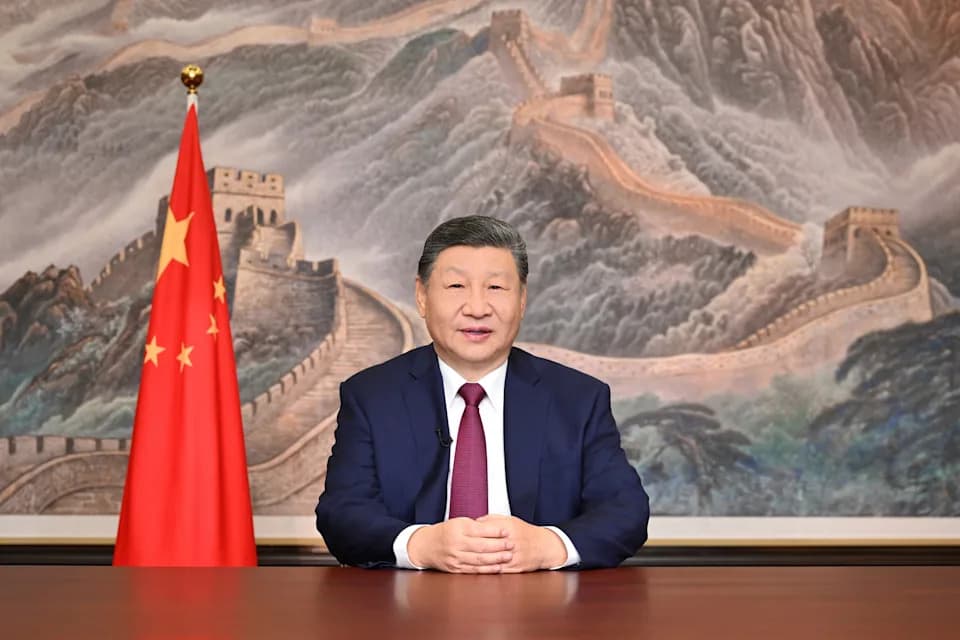Quick summary: Japan’s prime minister Sanae Takaichi said on November 7 that a Chinese attack on Taiwan could force Tokyo to deploy its Self-Defence Forces if Japan’s survival were threatened. Beijing reacted with sharp rhetoric, a provocative social-media post by its consul general in Osaka, military warnings and economic measures including suspended film premieres and travel advisories. Nearly 500,000 travellers cancelled trips, and analysts estimate the tourism fallout could cost about ¥2.2 trillion (≈£10.8bn). Diplomats have been summoned and talks are underway, but a wider military confrontation appears unlikely.
Japan’s 'Iron Lady' Sparks Major Standoff with China After Taiwan Remarks

Japan’s 'Iron Lady' Sparks Major Standoff with China
Japan’s new prime minister, Sanae Takaichi, has ignited one of Tokyo’s most serious confrontations with Beijing in over a decade after warning that a Chinese attack on Taiwan could prompt Japan to deploy its Self-Defence Forces if the conflict threatened Japan’s survival. Takaichi made the remarks on November 7 during her first major parliamentary appearance, less than a month after taking office in late October.
What she said
“The so-called Taiwan contingency has become so serious that we have to anticipate a worst-case scenario.”
Takaichi used a hypothetical Chinese assault on Taiwan to illustrate how Tokyo might respond to a "survival-threatening situation," echoing a long-standing view among some Japanese leaders — including former prime minister Shinzo Abe — that a Taiwan crisis could directly affect Japan.
Beijing’s reaction
Many officials in China viewed the comments as provocative. Xue Jian, China’s consul general in Osaka, reposted coverage of Takaichi’s remarks on social media with a caption translated as "cut off a dirty neck without a moment of hesitation," which Tokyo called "extremely inappropriate." Japan lodged a formal protest at the Chinese embassy.
China demanded a retraction, warning the remarks could "cause fundamental damage to the political foundation of China-Japan relations." State-linked outlets and officials issued sharp rhetoric, and the People’s Liberation Army warned Japan would "suffer a crushing defeat if it dared to militarily intervene" in any cross-Strait conflict.
Diplomatic, military and economic escalation
In the weeks that followed, both nations summoned each other's ambassadors. Japan dispatched Masaaki Kana, chief of Asian and Oceanian Affairs at the foreign ministry, to Beijing for talks. Chinese coastguard ships sailed near the Senkaku islands — territory administered by Japan but claimed by China — and Japan detected a suspected Chinese drone near Yonaguni, prompting fighter jets to scramble.
China also took cultural and economic measures: it suspended the premieres of Japanese films, encouraged citizens to avoid travel to Japan and issued travel advisories claiming, without evidence, that Chinese nationals might be at risk. Several Chinese airlines waived cancellation fees for Japan-bound passengers; nearly 500,000 travellers reportedly cancelled trips.
Economic impact
Analysts warn the fallout could be significant for Japan’s tourism and wider economy. Takahide Kiuchi, an executive economist at Nomura Research Institute, estimated the travel advisory could reduce tourism receipts by roughly ¥2.2 trillion (about £10.8 billion) and shave around 0.36 percentage points off GDP.
Analysis
Some experts argue Beijing’s response is strategic. Drew Thompson, a senior fellow at the S. Rajaratnam School of International Studies and a former director for China at the US Department of Defense, suggested the dispute might help stir nationalist sentiment, distract from domestic economic difficulties, or test Japan’s new leader. Observers say a full-scale military clash remains unlikely, but the diplomatic and economic damage is already tangible and risks further escalation.
The leader at the centre
Takaichi — sometimes described in the media as Japan’s "Iron Lady" and who has cited Margaret Thatcher as an inspiration — has declined to retract her remarks. Known for a demanding work schedule, she says she is standing by her assessment of Japan’s security needs despite the intensifying row with Beijing.
Note: this article focuses on verified public statements, official responses and reported economic estimates. Details of private diplomatic discussions have not been released.
Help us improve.



























